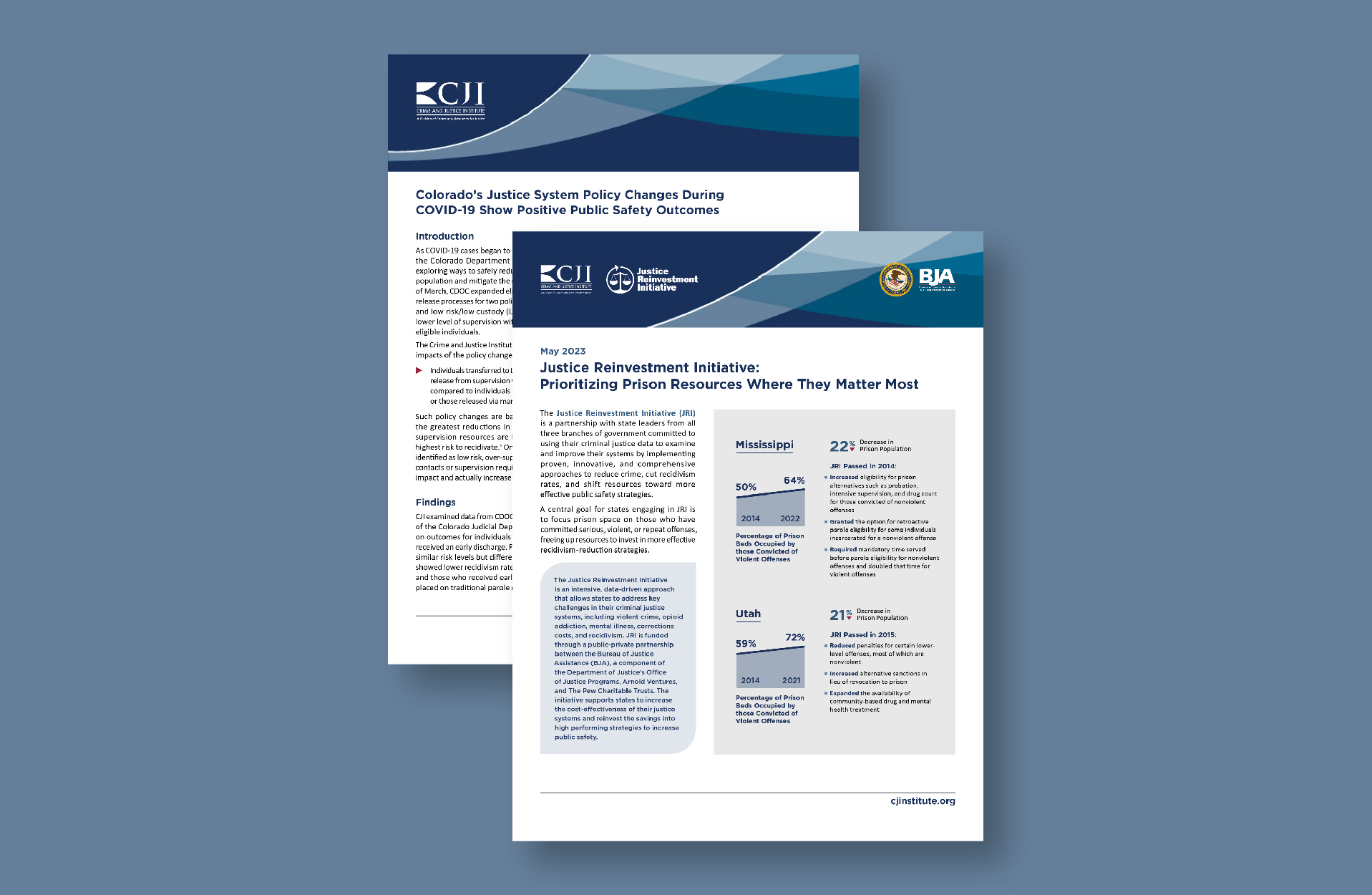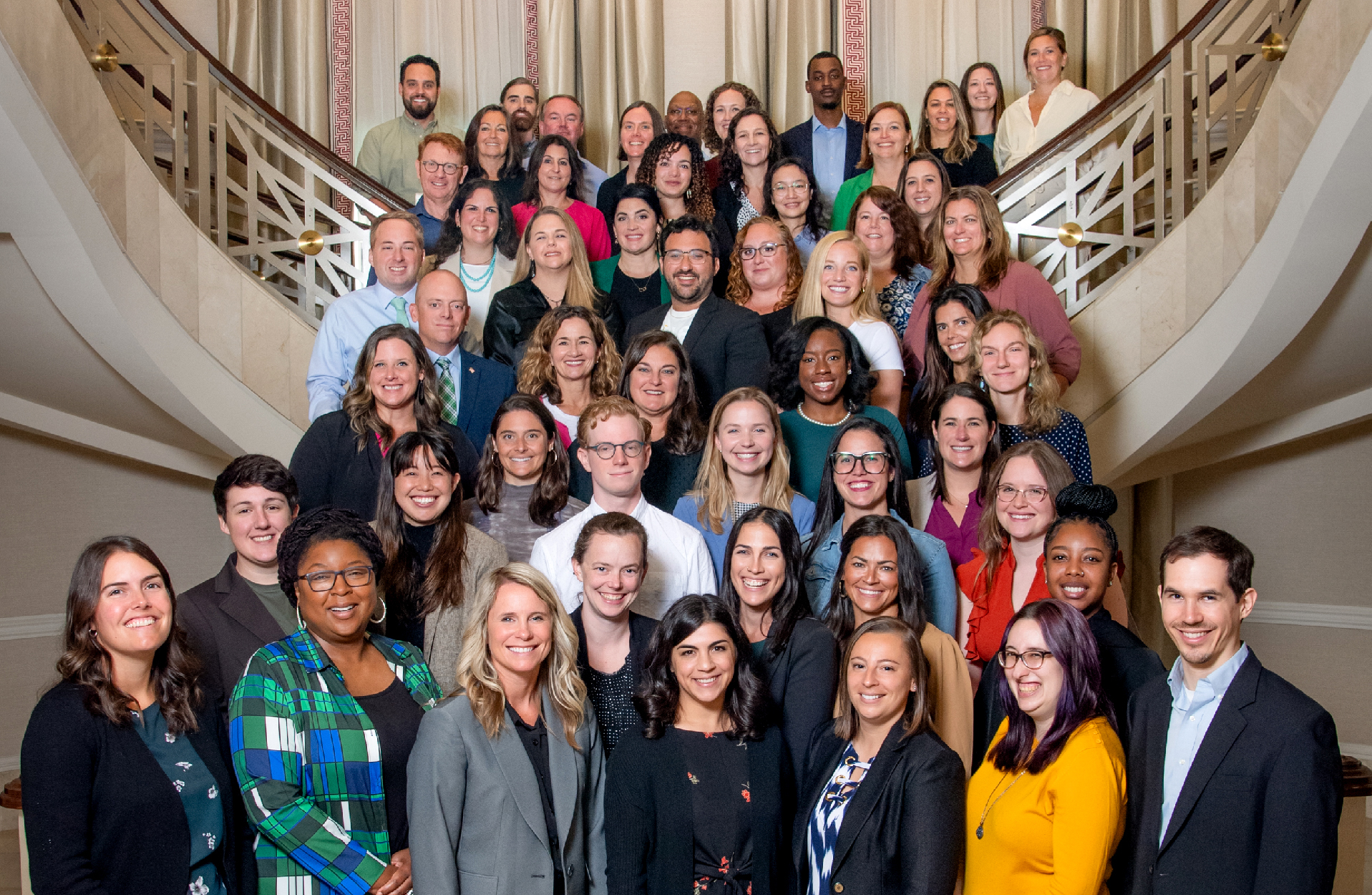CJI is working to advance the field of policing by contributing to underdeveloped research avenues and cultivating best practices to elevate positive change in the policing sector.
Our policing work focuses on good governance and promotes constitutional policing standards through accountability and data-driven decision-making (a selection of our work is below).
Policing has come under greater public scrutiny due to officer-involved shootings, uses of force, and subsequent community protests. As police departments continue to evolve, they must find ways to collect and analyze available data to create policies, strategies, and tactics that both improve public safety and increase community trust. Building on its many years of criminal justice experience, CJI is in a position to link policing practice with research and data by translating evidence-based research into realistic solutions that can work effectively for police agencies.
CJI works with a wide range of agencies and funders across the country, including:
- 21CP Solutions
- Community Oriented Policing Services (COPS), U.S. Department of Justice
- Edmond J. Safra Center for Ethics, Harvard University
- The Charles Koch Foundation
- Las Vegas Metropolitan Police Department, Nevada
- Major County Sheriffs of America
- Massachusetts Sheriffs’ Association
- National Institute of Justice, U.S. Department of Justice
- City of Seattle, Washington
CJI extracts lessons and shares applicable and replicable information while keeping transparency and community perspectives at the center of all of our policing work. When CJI partners with law enforcement agencies, we collect and analyze data, assess department policies and practices, and provide technical assistance. We work with police departments to develop strategies to implement systemic changes and align their policies and training curriculum with evidence-based practices. Our research and evaluation projects inform national-level policy and practice by translating research and best practices and learning from individual departments into valuable and accessible knowledge for police practitioners.
A SELECTION OF OUR WORK
Virtual Crisis Care
CJI works with law enforcement agencies to implement the Virtual Crisis Care model, which allows officers to connect with behavioral health professionals remotely and in real-time to more effectively respond to situations involving individuals in crisis. The model’s goals include reducing emergency mental health holds and unnecessary hospitalizations, increasing access to services for individuals with behavioral health needs regardless of where they live, and addressing behavioral health staffing shortages. Eight out of 10 people who came into contact with law enforcement while experiencing a mental health crisis were diverted from involuntary hospitalization under South Dakota’s Virtual Crisis Care pilot program, according to an analysis by CJI.
Office of Community Oriented Policing Services Collaborative Reform Initiative
CJI worked with the Department of Justice’s Office of Community Oriented Policing Services (COPS) to conduct an evaluation of the Collaborative Reform Initiative (CRI). CRI worked with police agencies to develop long-term strategies to address issues including the prevalence of officer-involved shootings or uses of force and to improve trust between police agencies and the communities they serve by providing a means to organizational and cultural change. We published two reports on CRI:
- The Collaborative Reform Process: Experiences of Selected Sites is an analysis of implementation of the Collaborative Reform Initiative across seven sites.
- Assessment of the Collaborative Reform Initiative in the Las Vegas Metropolitan Police Department is an assessment of the collaborative reform efforts undertaken by the Las Vegas Metropolitan Police Department.
1 October After-Action Review
CJI co-authored the 1 October After-Action Review, released in July 2019, which gives an in-depth look at law enforcement response to the deadliest mass shooting in modern U.S. history. CJI was honored to work with the Las Vegas Metropolitan Police Department (LVMPD) on this exhaustive review of the 1 October mass-casualty shooting. The 93 recommendations outlined in this report (many of which have already been adopted by LVMPD) offer guidance for other departments on responding to mass casualty events.


